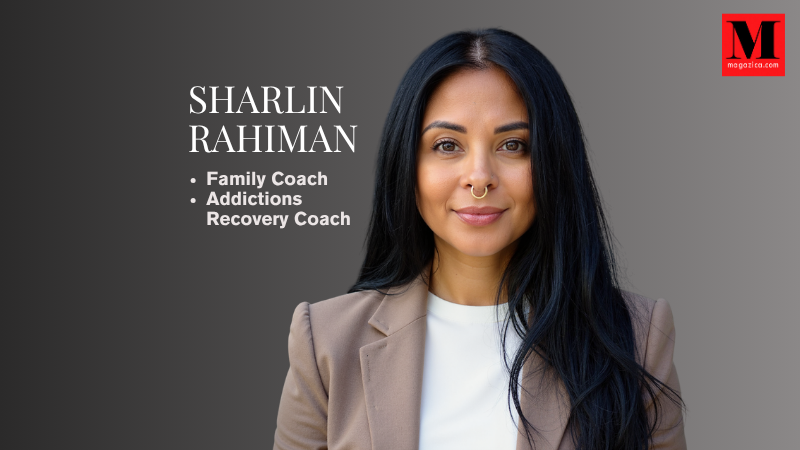Healing from Addiction: Insights on Recovery, Resilience, and Family Support
- Home
- Healing from Addiction: Insights on Recovery, Resilience, and Family Support

Healing from Addiction: Insights on Recovery, Resilience, and Family Support
Imagine transforming deep personal challenges into a powerful force for good. For two decades, Sharlin Rahiman has walked alongside others, first in human services, then finding her true calling in addiction recovery coaching. Drawing on her own experience as an adult child survivor of addiction and family violence, she meets individuals exactly where they are, without judgment. This isn’t just about stopping substance use; it’s about navigating the complex reality of addiction as a disease, building resilience through practical strategies, finding healing through holistic well-being, and understanding the vital, often overlooked, role of family support. Get ready to explore a compassionate path forward.
My Journey and Inspirations
My journey began about 20 years ago when I started to work in the human service field. I always felt that there were other ways to support individuals who were outside the box of regular care and support that individuals receive. About 10 years ago, I started working in the addiction recovery field. Some years down the road, I took the recovery coaching training with Still Here.
That is when I instantly fell in love with coaching, and I knew that it was my calling. To be able to walk alongside someone and meet them exactly where they are on their journey without judgment has been something I have always had a passion for. Recovery Coaching is very personal to me, as I am an adult child survivor of addiction and family violence.
Understanding Addiction Recovery
Truth: Addiction is a complex brain disease. While the initial use may be voluntary, addiction rewires the brain’s reward system, making it extremely difficult to stop without help.
Truth: Willpower alone is not enough. Addiction involves physical, psychological, and emotional dependence that requires comprehensive support, treatment, and healing.
Truth: Addiction does not discriminate. It can affect anyone, regardless of age, background, education, or income level.
Truth: Relapse is a common part of recovery. Like with other chronic conditions (e.g., diabetes, hypertension), setbacks can happen, but recovery is still possible.
Truth: Addiction impacts families, children, workplaces, and communities — emotionally, financially, and socially.
Truth: Recovery is an ongoing process. Treatment and support may be needed long-term, and healing takes time and consistency.
Truth: Medications like methadone or buprenorphine help stabilize the brain and reduce cravings, improving the chances of successful recovery.
Truth: Many people struggling with addiction desperately want help but feel trapped by stigma, shame, or fear of judgment.
Truth: Addiction is not about morality — it’s about biology, environment, trauma, and coping mechanisms. Compassion is key.
Truth: Addiction can involve behaviours too, like gambling, gaming, or food — anything that triggers compulsive behaviours despite harmful consequences.
The Role of Family in Recovery
Spiritual Coaching and Holistic Well-being
I truly believe that for healing, we should work on our emotional, mental, spiritual, and physical selves. We cannot heal and live a fulfilled life if we don’t work on our whole being. Spiritual healing can help us to learn coping skills, regulate ourselves, stay grounded, and have the strength to continue the journey by giving our pain and worries to our higher power.
Practical strategies to build resilience in their daily lives
Tool: Daily reflection journaling.
Ask: “What did I feel today? What challenged me? What did I learn?”
Tool: Positive affirmations and self-kindness exercises.
Tools: Breathwork, mindfulness meditation, physical activity, creative expression.
Tool: Attend support groups, coaching sessions, or family circles.
Tool: Reframing technique — ask: “What is this teaching me?”
Tool: Practice “Plan B thinking.” Visualize alternatives to your initial plan.
Tool: Break big problems into smaller, actionable steps.
Tool: Schedule regular time for rest, nutrition, hydration, and joyful activities.
Tool: Role-play boundary-setting in coaching sessions.
Tool: Values mapping exercise — list your core values and align daily actions with them.
Techniques or practices for managing stress and anxiety effectively
Try: 5-4-3-2-1 Technique: Name 5 things you see, 4 things you feel, 3 things you hear, 2 things you smell, and 1 thing you taste.
Try: Stretching or yoga.
Try: The “Rule of 3”: Focus on just 3 priorities each day.
Try: Replace “What if I fail?” with “What if I succeed?”
Tips: Avoid screens before bed. Keep a regular bedtime routine.
Talking things through reduces isolation and restores perspective.
Advice for Aspiring Coaches
It’s about having compassion and understanding. Showing up for the person without biases or judgments. Having empathy and self-awareness. Know your limits. Check in with yourself. Continuous growth and learning.
Balancing Professional and Personal Life
I am always checking in with myself to see how I am feeling. I strive to have a balance-emotionally, mentally, spiritually, and physically. Meditation, grounding techniques, self-care, getting plenty of rest, journaling, and making sure I am not taking on too much
Future Goals and Aspirations
I am holding my first event, which will be a continuation of teaching how to support children who have been affected by addiction and family violence. My goal is to be aware. I am also planning on educating on mental health.
Parting Insight…
Seek support. Keep going! Healing is possible, and you matter!
- Share
Sharlin Rahiman
Sharlin Rahiman, CCRC, RCP, RCPF is a Certified Recovery and Family Coach with more than 18 years of experience working in the human services field, including extensive work with individuals in addiction and recovery. Drawing from her own lived experience growing up with addiction and family violence, Sharlin brings a trauma-informed and deeply compassionate approach to supporting families, parents, and loved ones affected by addiction. Through her practice, Sharlin Rahiman Coaching, she empowers clients to move from surviving to thriving—helping them create safe, meaningful lives grounded in healing, connection, and purpose.
